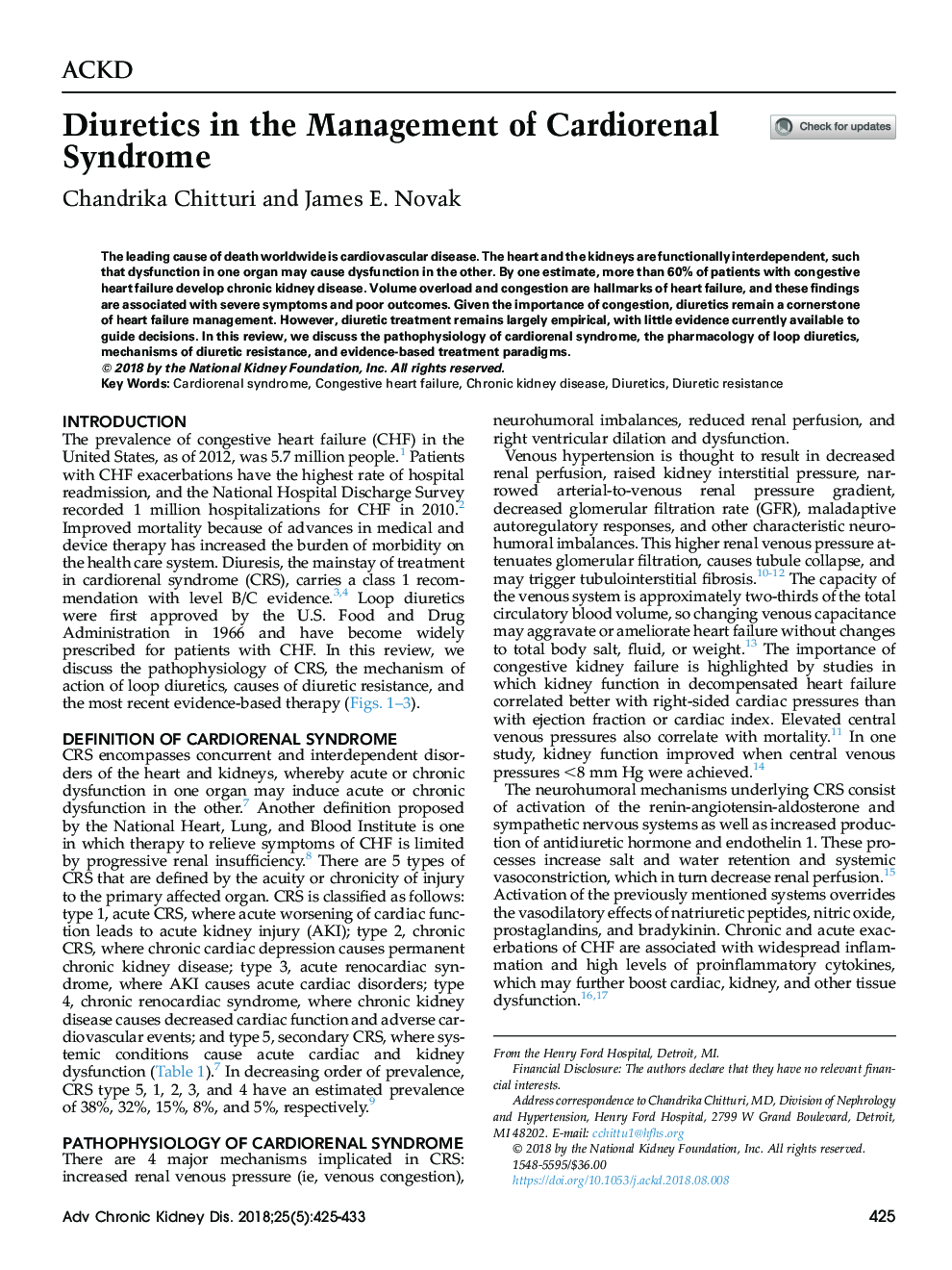| Article ID | Journal | Published Year | Pages | File Type |
|---|---|---|---|---|
| 11009455 | Advances in Chronic Kidney Disease | 2018 | 9 Pages |
Abstract
The leading cause of death worldwide is cardiovascular disease. The heart and the kidneys are functionally interdependent, such that dysfunction in one organ may cause dysfunction in the other. By one estimate, more than 60% of patients with congestive heart failure develop chronic kidney disease. Volume overload and congestion are hallmarks of heart failure, and these findings are associated with severe symptoms and poor outcomes. Given the importance of congestion, diuretics remain a cornerstone of heart failure management. However, diuretic treatment remains largely empirical, with little evidence currently available to guide decisions. In this review, we discuss the pathophysiology of cardiorenal syndrome, the pharmacology of loop diuretics, mechanisms of diuretic resistance, and evidence-based treatment paradigms.
Keywords
Related Topics
Health Sciences
Medicine and Dentistry
Nephrology
Authors
Chandrika Chitturi, James E. Novak,
